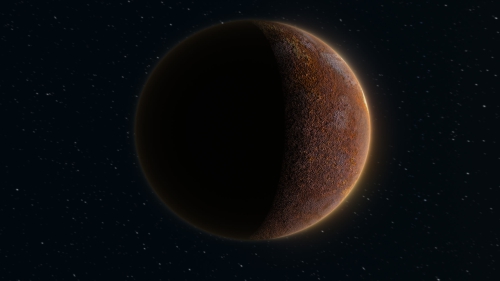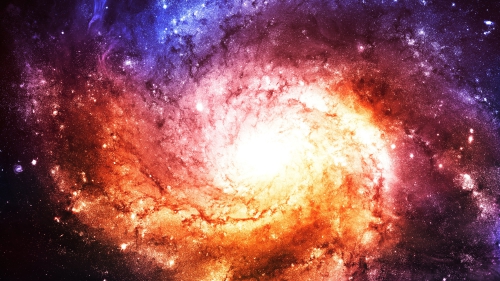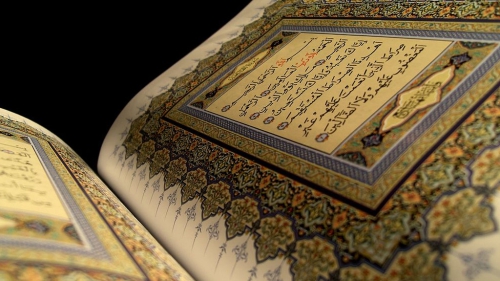No Worship-Like Attitude to Science

Allah says in surah (chapter) Luqman, verse 11: “This is the creation of Allah (khalq Allah). So show Me what those other than Him have created (khalaq). Rather, the wrongdoers are in clear error” (Luqman, 11).
The following are four takes on the verse.
First: the meaning of khalq
Allah uses in the Qur’an several words for creation. The most emphatic and frequent one is khalq, which means “creating something out of nothing (ex nihilo)”.
The word occurs in various derived forms 250 times.
The message contained therein is that it is Allah alone who creates. Nobody else does, nor can.
Man can only use, process, assemble, make, build, manipulate, engineer, etc., things, employing what is already there.
Man cannot go beyond the level of re-creating and re-forming what has already been created for him.
Of the beings that have been created by the Creator is man himself. Thus, it is impossible to have a creation that can create.
Allah is al-Khaliq, the Creator. The word “creation” is ascribed to man – or any other being - but metaphorically.
Man lives and behaves by using his abilities and talents, which, too, have been created and have been gifted to man by Allah.
Since Allah in the above verse wants to prove His monotheistic omnipotence, almightiness and majesty against polytheistic leanings and traditions, He uses the subject of creation as His exclusive and most authoritative privilege.
On top of that, of the words generally used for creation, Allah uses in this context the word khalq. That is with the aim of instantaneously silencing those wrongdoing people as might be inclined to deify themselves and their own legacies, or to conceive and associate other deities with Allah.
Second: show (share with) Me what you see
When dealing with any form or manifestation of falsehood, Allah confronts it directly and most clearly.
No unnecessary theorizing and even elaborating. No beating around the bush.
Allah targets the minds and hearts (rationality and common sense) of the people as the sources of wisdom and judgments.
In this case, Allah asks polytheists to show Him and the Prophet (pbuh) what those (they venerate and worship) besides Him have created.
Allah tells them this.
Creation is a tangible thing. Transporting it from nothingness to actual existence is the prerogative and right of Allah alone in His capacity as the Creator and Lord of the worlds.
If those they invoke besides Allah are gods, they will have to be creators as well. Otherwise, they will not be entitled to be gods.
A god cannot be passive or weak.
And since polytheists insist that they are gods (deities), there must be evidence of their active and creative powers in the realm of creation. That is, their creations must exist.
Indeed – parenthetically - only fools will deify something that is ordinary, restricted, inadequate, and a mere creation.
So Allah insists that polytheists show Him and the Prophet (pbuh) those creations – underlining that the creation of His is omnipresent and constantly witnessed by everyone.
Asking polytheists to show and share what they have in relation to their gods is very critical. That is so because a person may live in his own fool’s paradise dominated by his own flawed perceptions and standards.
It is only when he reveals his world and juxtaposes it with the outside real world that the truth starts emerging.
It is only then furthermore that a person understands that his was a world of delusions and fantasies. It was a mirage.
Allah asks polytheists to “show” those things (aruni), for created things must be both understandable and observable at any level of man’s cognitive proficiencies.
If they are not, they are then non-existent and unreal.
Faith is at once an idea and lifestyle, a philosophy and practice.
If polytheists saw and understood something, everybody else likewise could do the same. They then should not be afraid to share their insights with others.
But if they could not show anything, nor logically back up their claims, that means that the real problems lay with them, not with others.
In passing, the root word of aruni is ra’a, which means both “to see” and “to realize and understand”. Ru’yah is “vision”, and ra’y “opinion” or “outlook”.
Third: no worship-like attitude to science either
In the verse that precedes the above verse, Allah as the Absolute Creator reveals some of the remarkable secrets of His creation.
He says: “He created the heavens without any pillars that you can see; He set on the earth mountains standing firm, lest it should shake with you; and He scattered through it beasts of all kinds. We send down rain from the sky, and produce on the earth every kind of noble creature, in pairs” (Luqman, 10).
As brief as it is, the verse sums up so comprehensively the significance, together with the intricacies, of the created world. As such, they testify to the brilliance and splendour of the Creator.
This infinite complexity, first and foremost, Allah intends when He affirms in the next verse: “This is the creation of Allah” (Luqman, 11).
The idea hereby is that creation should be used as a means for arriving at the more important ontological ends in connection with the Creator.
Only in that case will the Creator be appreciated as such, and will creation be seen exactly as it is.
If however this order is muddled, neither the Creator nor His creation will be given their respective dues, proportionally to the confusion attached to them.
In the verse in question (Luqman, 10), additionally, a message for secular science is likewise implied.
If divorced from the revealed knowledge and guidance, such science will not be able to transcend the boundaries of the physical world, which are of little consequence when compared with the infinite treasures of the metaphysical world, some of which are intimated in the mentioned verse.
Science will remain trapped in matter, shackled with its inhibiting fetters. As a result, servitude to matter and vain desires will be mistaken for freedom, confusion and downright ignorance for knowledge and wisdom, and backwardness for progress.
Means will become ends, and ends, in turn, will become either downgraded to mere noumena or dispensed with altogether.
By way of illustration, the fundamental truths revealed in the second verse (Luqman, 10) are destined to evade evermore the world of science, causing a big loss to knowledge and wisdom.
That is the situation with merely one verse. What about the abundant truths contained in the rest of the revelation: the Qur’an and the Prophet’s Sunnah?
To secular science, those truths are far-fetched, but to the revelation, they are customary and sensible. They are created facts of life.
Surrounded by myriads of life mysteries and phenomena, science will remain forever bogged down in asking the superficial questions of “what” and “how”. There will be neither time nor energy for asking, let alone answering, the questions of “who” and “why”.
While the latter signifies the true knowledge, the former revolves around merely stating the obvious. It warrants no progress insofar as the higher order of things and meanings is concerned.
As an instance, the first thing mentioned in the verse (Luqman, 10) - that is, creating the heavens without any supports, or without supports visible to people - to many especially subsequent commentators of the Qur’an, means the law of gravity (until something else, perhaps more fitting, is made available).
However, to the Qur’an, simply knowing that there are some invisible powers (laws) that withhold cosmic objects from falling on one another, and which give weight to physical objects on earth, is by no means outstanding knowledge.
Those powers and laws were there all the time, regardless of whether mankind knew them or not. Suddenly discovering the obvious changes nothing much in the grand scheme of things.
Knowing them, or not, will not necessarily affect the ultimate destiny of man on the Day of Judgment.
Conversely, part of outstanding knowledge is to know who is behind those laws, why they have been instituted in the first place, and how they are connected to the purpose of life, in general, and to the honourable terrestrial mission of man, in particular.
As a form of knowledge, the former is conditioned by the latter. Alone, it is but a body of suspended and partial information, which can ensure no more than partial and erratic benefits.
This is demonstrable in the fact that today, despite the numerous giant strides made by secular science, mankind is yet to answer the most fundamental questions of life, and is still short of essential ingredients needed for genuine happiness, peace, and the true spiritual, moral as well as intellectual development.
When all is said and done, science and scientists are barking up the wrong tree.
The act of pursuing the obvious and focusing solely on the purported one-dimensionality of life (creation), without even trying to acknowledge, much less show appreciation to, the Creator, is a kind of ontological plagiarism.
Yet, it is the worst and most embarrassing kind of plagiarism.
Indeed, science as a means and vantage point is much desirable and laudable, but scientism as an ideologized end, creed, and a pattern of practicing science for science’s sake connotes the fountainhead of all problems. It is unsafe and misleading. It is contagious.
A long series of ungodly civilizations which filled the pages and composed the volumes of history, were based on questionable or outright wrong premises – similar to the disposition of the modern materialistic-cum-hedonistic civilization.
As unsuccessful experiments of divinity and Heaven-defiance, those civilizations were examples of failure. The same history whose pages they filled and whose volumes they composed, came to be a witness against them. Its bosom proved their necropolis.
Only such as are misguided from subsequent ages – including the current age - glorify such failed civilizational legacies. Attempts accordingly are made to revive and imitate some of their aspects, setting in motion a vicious civilizational circle. One wonders, therefore, if people will ever learn.
As if Allah declares to scientists (scholars, sages and educators), who choose to desacralize the world through science (knowledge, education and innovation) and hence, contribute to building a nonspiritual (profane and materialistic) civilization: “All this is My creation. Now show Me what is there that you have created (and that is yours). Show Me what you have, apart from using, manipulating and misusing My creation and My signs which I have scattered through it for a profound purpose. Walk your talk.”
The revelation teaches man to discover and integrate the knowledge of the physical and metaphysical world, without attending to either of them at the expense of the other. Man is not the measure of all things; the revelation is.
Fourth: how do we know, and relate to, the Creator?
A compelling question is how to know if there is the Creator and who exactly He is, and how to relate to Him.
Astonishingly, the answer is simpler than it seems.
However, it is the job of Satan to mislead man, and the job of nonspiritual science to confuse him. The two are close allies.
The world of creation is undeniable, along the lines of the dictum “I think, therefore I am” (cogito ergo sum).
Creation is the strongest evidence that there is a creator, for things cannot create themselves, nor can they come about by accident.
The above dictum thus could be extended to “I exist, therefore my creator exists”.
That Creator is Almighty Allah. We know that because He revealed Himself to us, communicating the truth to us through His holy prophets and His holy revelations.
Supported directly by Heaven, the prophets and their models stood the test of time and circumstance, proving themselves as the only profitable and truly sustainable option for mankind.
The Qur’an is the last revelation given to the last prophet, Muhammad (pbuh). It is the eternal and at the same time most potent miracle. It perpetually challenges the legitimacy of all the ungodly ways and standards of living.
The world of physics and that of metaphysics converged inside the ambits of the prophets’ holy personalities and their holy works. They were so subtly interwoven that it is often hard to determine where one world ends and where the other begins.
The prophets represented both worlds and intensely lived in both of them.
That’s why the Prophet’s wife A’ishah once said that the life of the Prophet (pbuh) in its totality was extraordinary. Exceptionality was the rule of the day.
Today, a true follower of Prophet Muhammad (pbuh) inherits a part of that unity.
By worshiping Almighty Allah, by living His final revelation (the Qur’an which is Allah’s holy word and so, is uncreated as well as eternal), and by taking the Prophet (pbuh) as an exemplar, a person is set to refine and conquer his physical dimension. He then infuses it with the essence of spirituality and otherworldliness.
He himself becomes a confluence of the two realms.
When carefully examining his innermost world, a believer can feel how gracefully the two merge inside him, functioning either as completely one or a two-in-one prospect, subject to circumstances.
The processes are so overwhelming, yet so inexpressible; so self-evident, yet so mysterious; and so near, yet ever indefinable. The best thing to do, it follows, is to surrender to the inundation of states (ahwal) and sensations, experiencing them however one’s spiritual capacity dictates.
No time – or opportunity – is to be wasted on trying to put the moods into words. That is impossible, positively, in that words (languages) belong utterly to this world, while the moods do so just partially.
Besides, the moods are blissful and identical across the board. They are also heavenly, so to speak. They are the language of the soul.
Therefore, if it is said that man is a microcosm, it could likewise be said that a believer is a small-scale version of the truth as a whole. He is a micro-truth.
He as a creation is an undeniable proof of the existence of the Creator, and as an avid servant he as well is an undeniable proof of the existence of the Lord.
Allah says: “And on the earth are signs for the certain (in faith). And in yourselves. Then will you not see?” (al-Dhariyat, 20-21).
“We will show them Our signs in the horizons (the universe) and within themselves until it becomes clear to them that it is the truth. But is it not sufficient concerning your Lord that He is, over all things, a Witness?” (Fussilat, 53).
Topics: Allah, Cosmology, Creation And Evolution, Heart, Islam And Science, Life And Death, Materialism, Metaphysics, Mind, Modern Science, Nature And Environment, Physics, Soul (Nafs) Values: Education, Guidance, Knowledge, Peace, Spirituality, Truthfulness, Wisdom
Views: 1154
Related Suggestions

















